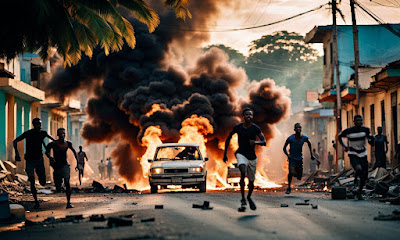Haitian Migration to The Bahamas: Understanding the Humanitarian Crisis
The reasons behind the influx of Haitian migrants are manifold. Decades of political turmoil and economic mismanagement have left Haiti as one of the poorest countries in the Western Hemisphere, with widespread poverty and limited access to basic services. The devastating earthquake in 2010 further exacerbated these challenges, displacing hundreds of thousands of Haitians and leaving many with no choice but to seek refuge elsewhere.
For those who do reach The Bahamas, the challenges are far from over. The country's immigration policies have become increasingly strict in recent years, leading to a crackdown on undocumented migrants and a rise in deportations. This has created a climate of fear and uncertainty for Haitian migrants, many of whom live in the shadows, afraid to seek help or access essential services for fear of deportation.
The situation has been further complicated by the COVID-19 pandemic, which has strained The Bahamas' healthcare system and economy. As the country grapples with its own internal challenges, the influx of Haitian migrants has added additional pressure on resources and infrastructure, exacerbating tensions between the migrant community and the local population.
Moreover, they emphasize the need for international cooperation and solidarity in addressing the underlying issues driving Haitian migration, including poverty, inequality, and political instability. By working together to tackle these challenges, countries can create a more just and equitable world where all people have the opportunity to thrive and live in dignity.
In conclusion, the influx of Haitian migrants to The Bahamas highlights the urgent need for a comprehensive and compassionate approach to immigration that respects the rights and dignity of all individuals. As the international community grapples with the ongoing refugee and migrant crisis, it is imperative that we come together to address the root causes of migration and build a more inclusive and equitable world for future generations.




